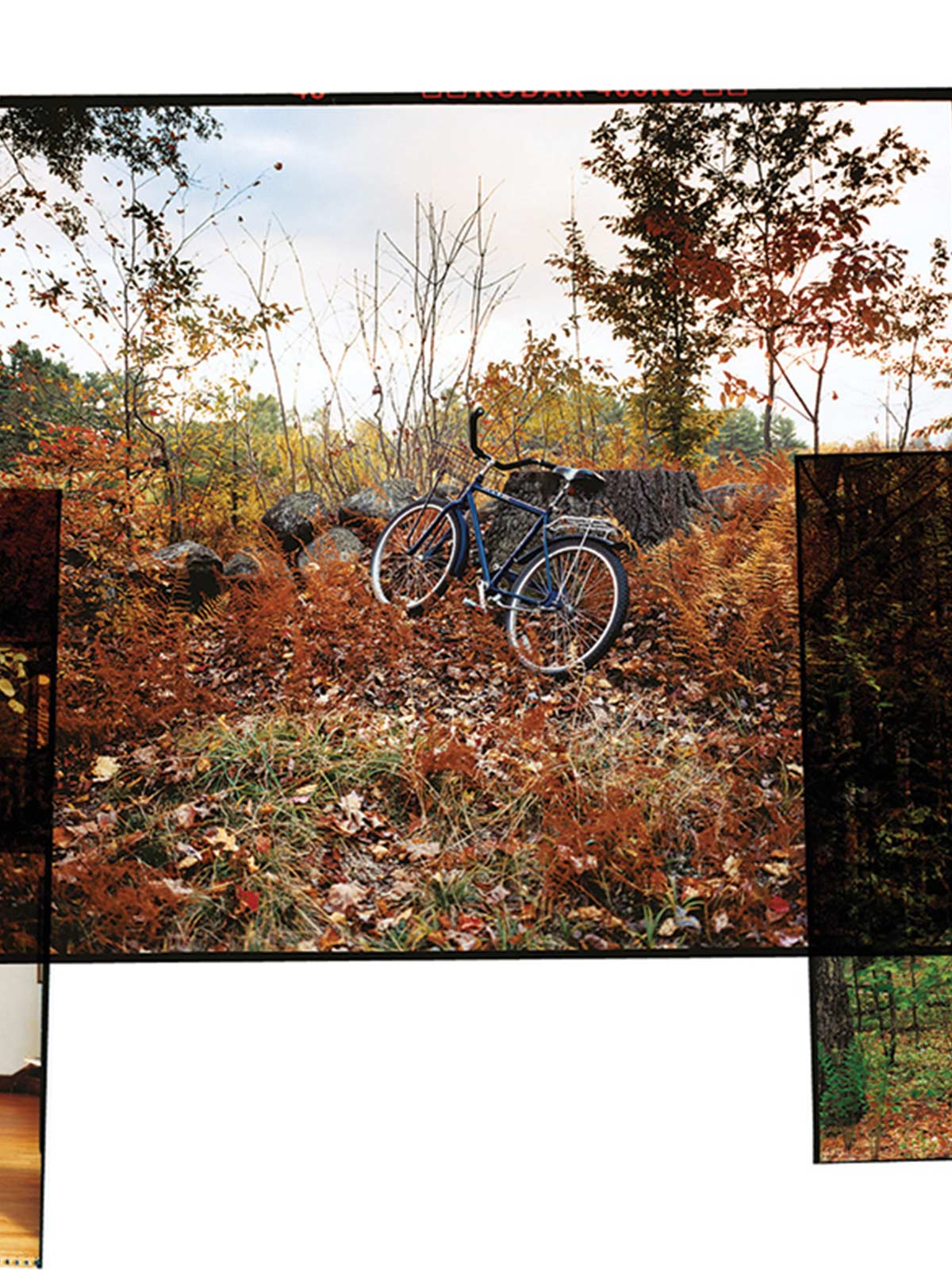Author Cris Beam reveals the secret world of America's oldest artist retreat in Document's Spring/Summer 2014 issue.
On my phone, I have a picture of a tiny orange salamander, half the size of my pinkie. There’s a frog too, the color of wet sand and small as a dime. I didn’t take photos of the spiders, but they were bigger and everywhere, scurrying across screen doors with their red bellies and pointy origami legs.
When I went to MacDowell, the famed artist’s colony in Peterborough, New Hampshire, I wasn’t expecting animals. I was working on a novel about the Manhattan women’s prison—a very urban story—and my mind was tightly braided up in that. But when you’re left alone in an old stone house to look out on the dense forest that makes up MacDowell’s 450-acre property, the animals come to you.
Every night in summer, the 30-odd visual artists, writers, composers, architects, filmmakers, and dancers staying at MacDowell gather in the main hall for a single meal. And we talk about the animals. Largely hailing from New York City or other urban areas where we have to prove and sell and perform and promise, we’re suddenly like wide-eyed children, waiting for the next gift. And waiting, I learned, is also a kind of work. It’s a slowing down.
Bears, we agreed, were the best. These were brown bears, vegetarian amblers, though their sheer heft could be startling. Moose were more rare, almost mythic in their size and strangeness, and when someone spotted one poised like a statue at a dirt road, we were all envious. The deer were so copious they were soon not worth mentioning, though their babies, furtive and stumbling, were still cute. There were wild turkeys streaking the fields in the morning and wild boar crashing through brambles at dusk. A poet from Brooklyn was afraid of the spiders. A composer from Turkey was nervous about night animals and asked to sleep in the main hall. There was no wildlife like this in Istanbul she said, and she needed car horns to lull her to sleep.
But most of us settled into the quiet, just like people have been doing here for over a hundred years. MacDowell was established as the first U.S. artist’s colony in 1907, by the wife of composer Edward MacDowell. Though Edward lived in New York and Paris, it was in the unspoiled countryside of New Hampshire that he wrote his best work. Marian MacDowell wanted to create this same experience for other artists so she built a few cottages on the property. Today, there are 32 studios nestled in the vast woods, none within sight lines of the other.
To be accepted for a residency of up to two months, artists have to submit samples of their work. But that’s the sole and final requirement. Once we set up our easels or computers in the little cottages equipped with beds and fireplaces and porches to nowhere, there’s nobody but the spiders watching us work. There is no exit interview here, no pressure to perform, nobody asking if you spent your time wisely, or slept all day, or catalogued salamanders on the path. It’s anti-capitalist in its way, anti-consumer. It’s based on an older contract that urges us to give when we can, without expectation of return.
This is a world, both physical and psychological, apart. And along with the animals, come the demons. Introspection, so vital to creation and yet so hard to cull in a city that demands products and results, is furrowed with demons. Here is your mother and the death you thought you’d grieved showing up in a poem you didn’t know you had to write and which you will likely erase. Here is your cruelty, your greed, your broken heart, all typing their way into the novel about the woman in prison, and certainly they don’t belong in that storyline. And here is your kindness, arriving like a salve, and that matters too but you can’t remember why. And suddenly you are throwing away days of work, bad writing, and bad art, and talking about the bears over dinner.
People say that destruction is intrinsic to creation. Something has to die to clear the space, or light a spark, for new work to emerge. But such destruction is hard to justify when agents or editors, deadlines or debts, demand constant output. Rare is the sanctuary where you’re provided food and bed and beauty enough to kill your darlings and your demons both.
One morning after I had walked the mile from the breakfast hall to my studio, I found a bird’s nest on my front porch. It had fallen from the rafters. I worried for the birds, a pair of white-throated sparrows, as I had watched them busily packing their nest with twigs and moss for days. To me, the nest looked perfectly complete. A work of art, and a shame for them to lose it. How many days or weeks would it take them to build it again?
I kept that nest beside my computer as I recreated the days lost to demons. I wrote new pages, better pages, after I had the newfound freedom to throw them away. I don’t know if Aaron Copland followed this same process, or Willa Cather, or Meredith Monk, or any of the 7,000 artists who have spent time at MacDowell. But I do know that the strangely simple and generous formula of this hundred year-old residency works. James Baldwin wrote Giovanni’s Room here. Alice Walker tackled her first novel; Leonard Bernstein completed his “Mass.” And the spiders watched it all, or ignored it, either way.




















